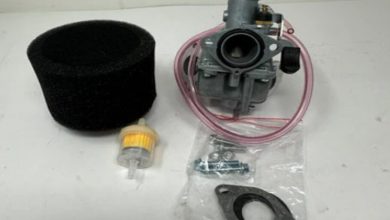How ALPR is Revolutionizing Fleet Operations: Commercial & Waste Management

Fleet operations are the backbone of modern cities and industries. From commercial transport fleets powering e-commerce and logistics to waste management fleets keeping urban environments clean, efficient vehicle coordination is crucial. However, traditional fleet management systems often fall short in delivering the automation, real-time insights, and compliance capabilities organizations need today.
This is where Automatic License Plate Recognition (ALPR) technology is making a transformative impact. By combining AI-powered vision with connected fleet systems, ALPR is enabling faster, smarter, and more accountable fleet operations across both commercial transport and municipal waste services.
In this article, we’ll explore how ALPR is reshaping fleet management, examine specific use cases, discuss its benefits, and highlight what the future holds for this innovative technology.
What is ALPR and Why It Matters in Fleet Operations
Automatic License Plate Recognition (ALPR) uses cameras and AI-based image processing to capture, read, and record vehicle license plates in real time. When integrated into fleet operations, ALPR becomes much more than just a security tool—it evolves into a data-driven automation engine.
Key ALPR functionalities for fleets include:
- Automated Vehicle Identification: Eliminates manual logbooks or RFID scans.
- Access Control: Restricts depot or yard entry to authorized vehicles.
- Real-Time Tracking: Monitors vehicle movement across multiple sites or regions.
- Data Analytics: Offers insights into fleet usage, compliance, and operational bottlenecks.
By embedding ALPR into fleet systems, managers gain end-to-end visibility, reduce paperwork, and make data-backed decisions to optimize operations.
ALPR for Commercial Fleet Management
ALPR Commercial fleets, such as logistics carriers, freight companies, and delivery providers, face challenges like tight deadlines, driver shortages, regulatory compliance, and security risks. ALPR addresses these pain points by automating core operational processes.
1. Automated Entry and Yard Management
Fleet depots can be high-traffic zones. ALPR streamlines access by automatically logging vehicles as they enter or leave the facility. No more manual checks or gate delays—vehicles are instantly verified, ensuring only authorized trucks move in and out.
Impact: Reduces congestion, strengthens security, and saves staff hours.
- Real-Time Route Monitoring and Optimization
When ALPR data integrates with GPS-based fleet tracking, managers can visualize routes taken, spot inefficiencies, and reroute vehicles dynamically. This is particularly valuable in urban logistics, where traffic congestion can disrupt delivery schedules.
Impact: Optimized routes lower fuel costs, cut delivery times, and improve customer satisfaction.
- Regulatory Compliance and Auditing
Many commercial fleets must comply with local transport permits, tolls, or restricted zone access rules. ALPR automates the capture of compliance data—time-stamped entry/exit logs and vehicle IDs, creating an auditable trail for inspections and internal reviews.
Impact: Minimizes compliance risks and eliminates paperwork-heavy reporting.
- Theft Prevention and Asset Security
Cargo theft and vehicle misuse are persistent challenges. ALPR can alert managers if unapproved vehicles attempt to access secured areas or if a fleet truck leaves a designated perimeter unexpectedly.
Impact: Strengthens security and mitigates costly losses.
ALPR for Waste Management Fleets
ALPR for Waste Management Fleets streamlines operations by automating route verification, improving tracking, and reducing fuel costs, helping fleets meet strict municipal schedules efficiently.
1. Smart Route Verification and Accountability
Cities and private contractors often face citizen complaints about missed pickups. ALPR-equipped waste trucks automatically log when and where each vehicle operates, providing indisputable records of completed routes.
Impact: Enhances accountability and resolves disputes quickly with data evidence.
- Dynamic Routing for Efficiency
Waste fleets can integrate ALPR data with IoT sensors (e.g., smart bins) to dynamically adjust collection schedules. Trucks only visit full bins, reducing unnecessary trips.
Impact: Cuts fuel usage, reduces emissions, and optimizes vehicle utilization.
- Automated Service Billing and Records
For waste services billed per visit or by district, ALPR simplifies administrative work by automatically recording which vehicles serviced which zones—feeding directly into billing systems.
Impact: Streamlines invoicing and improves transparency for municipalities and contractors.
Cross-Industry Benefits of ALPR
Whether deployed in commercial or waste fleets, ALPR offers universal advantages:
- Efficiency Gains: Automating vehicle tracking and access control reduces administrative overhead.
- Cost Savings: Fuel-efficient routing, fewer idle hours, and better scheduling cut operational costs.
- Improved Compliance: Automated logs simplify regulatory audits and internal reporting.
- Enhanced Safety: Restricted access and monitored yards reduce risks of unauthorized usage.
- Scalability: ALPR integrates with cloud-based fleet platforms to support multi-site and multi-region operations.
Challenges and Considerations
While ALPR delivers clear benefits, successful deployment requires addressing:
- Data Privacy & Legal Compliance: Follow local regulations on vehicle data retention and usage.
- Infrastructure Investment: ALPR requires cameras, servers, or cloud-based platforms.
- System Integration: ALPR should connect seamlessly with fleet management, ERP, or IoT tools.
- Training & Change Management: Teams must adapt to automated workflows and analytics dashboards.
Thankfully, modern cloud-hosted ALPR solutions minimize hardware needs, while edge AI reduces processing latency and network loads.
The Future of ALPR: AI and Beyond
ALPR is evolving beyond plate recognition alone. Future-ready fleet systems will integrate:
- AI Predictive Analytics: Forecast vehicle downtime and optimize routes automatically.
- Connected IoT Sensors: Link ALPR data with cargo sensors, bin-level sensors (waste), and weather feeds.
- Autonomous Fleet Coordination: ALPR will play a role in coordinating autonomous delivery and service fleets.
- Generative AI Insights: Combining ALPR data with generative AI simulations can create predictive traffic models and optimize entire fleet ecosystems dynamically.
Key Takeaways:
ALPR is no longer just a security tool; it’s becoming an operational cornerstone for modern fleet management. For commercial logistics, it means faster deliveries and stronger compliance. For waste fleets, it ensures verified service, cleaner cities, and cost-effective operations.
Businesses and municipalities adopting ALPR now will be positioned ahead of competitors, leveraging real-time intelligence to build smarter, greener, and more efficient fleets.

Source: How ALPR is Revolutionizing Fleet Operations: Commercial & Waste Management



